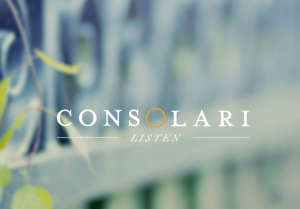I’ve been on the road participating in two convenings and learning from a host of smart arts workers (administrator/programmers, philanthropists, scholars and artists). Several topics, plenty of compelling data (soft and hard), some competing agendi. Through it all I was struck, again and again, by how often the topic of interpretation and valuation came up. The words/jargon might be different from context to context (impact, knowledge exchange, excellence, value chain, multi-literacies, and my personal favorite, monetization) but the underlying urge is clearly aligned. We want to participate in the meaning making and valuation process because it is at the center of the arts experience.
 In early October I spent two days at an arts retreat convened by Steven Tepper, the new Dean of the Herberger Institute for Design and the Arts at Arizona State University, and hosted by Bob and Christi Worsely, philanthropists behind the Consolari Foundation Project.
In early October I spent two days at an arts retreat convened by Steven Tepper, the new Dean of the Herberger Institute for Design and the Arts at Arizona State University, and hosted by Bob and Christi Worsely, philanthropists behind the Consolari Foundation Project.
In preparation for a discussion intended to audition new ideas for a planned state-of-the-art music campus in downtown Mesa, we read Tepper’s recent op-ed from the Chronicle of Higher Education in which he argues that what we need, in both our education and cultural sectors, are more “bigger-than-me-experiences” where the value of finding out what I don’t know is greater than the need to express what I already know or believe I know. To me, Tepper’s call to arms is another way to think about the essential role that social interpretation plays in our ability to engage with the arts. But my equation here needs to be parsed carefully: I’m not arguing for more facile/thoughtless modes of opinion shouting (“likes” and their ilk), but rather for opportunities to engage in productive talk that by definition and operation (1) airs publicly a range of opinions and perspectives on a topic, (2) listens and considers other points of view, and (3) works toward both collective and individual meaning making. If Millennials need to be both the discoverer and the one who shares the discovery (the reason why the phone can never be turned off), why not annex that urge and lead it toward a greater good? Authentic productive talk about the meaning and value of the arts is by its very nature bigger-than-me.
Then this past weekend I gave a paper at the Social Theory, Politics and the Arts annual conference (hosted this year by the University of Ottawa) and heard two powerful keynote addresses that pulled no punches when identifying elitist/positivist notions of meaning and value. Philip Schlesinger, Deputy Director of CREATe (RCUK Centre for Copyright and New Business Models in the Creative Economy) at the University of Glasgow, reminded us that the economization of culture trend constructs a false framework wherein everything of value is assumed to be measurable. He argued that we need to be putting much more emphasis on informal research—musings, exchange of ideas, conversations, meaning-making—because cultural research and researchers should be stimulating reflection (not simply providing “proof.”)
The second keynote was given by Simon Brault, the newly appointed Director and CEO of the Canada Council for the Arts. It was incredibly refreshing to hear him to challenge both the concept of and the ongoing use of the term “artistic excellence” in the arts sector. He unequivocally debunked the concept, noting that there simply cannot be any objective measuring of “excellence” since the very concept changes from artist to discipline to culture and sub-culture. And he noted the debilitating effect it has on the arts, since hiding behind such claims keeps arts workers from actually entering into a meaningful conversation about the audience experience.
I could not agree more. As I have written before in this blog and in my new book, audiences are not engaged by claims of “excellence.” They are engaged by being included in an arts experience that includes the opportunity to interpret the meaning and value of the art they consume.
Monetize that.

Leave a Reply